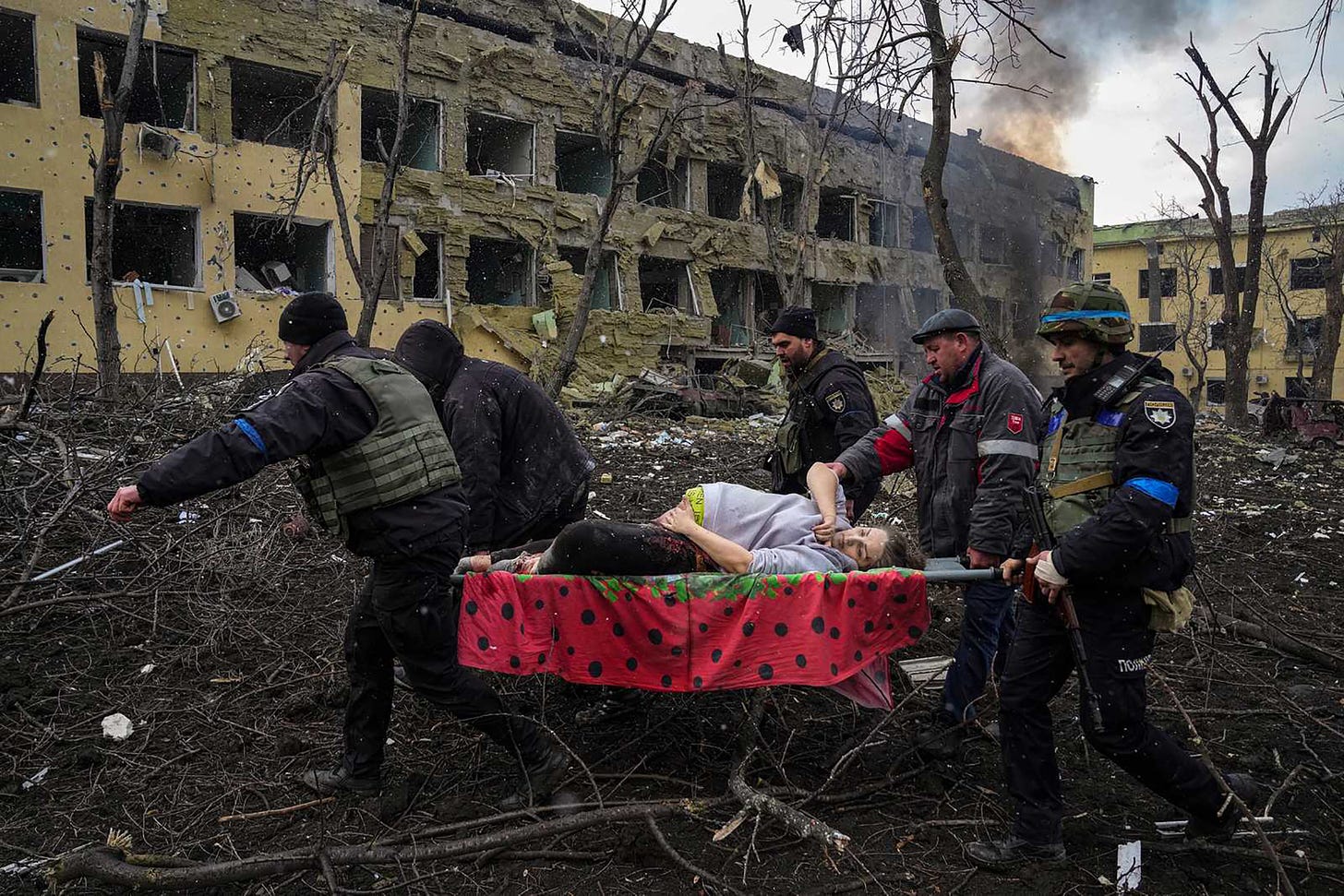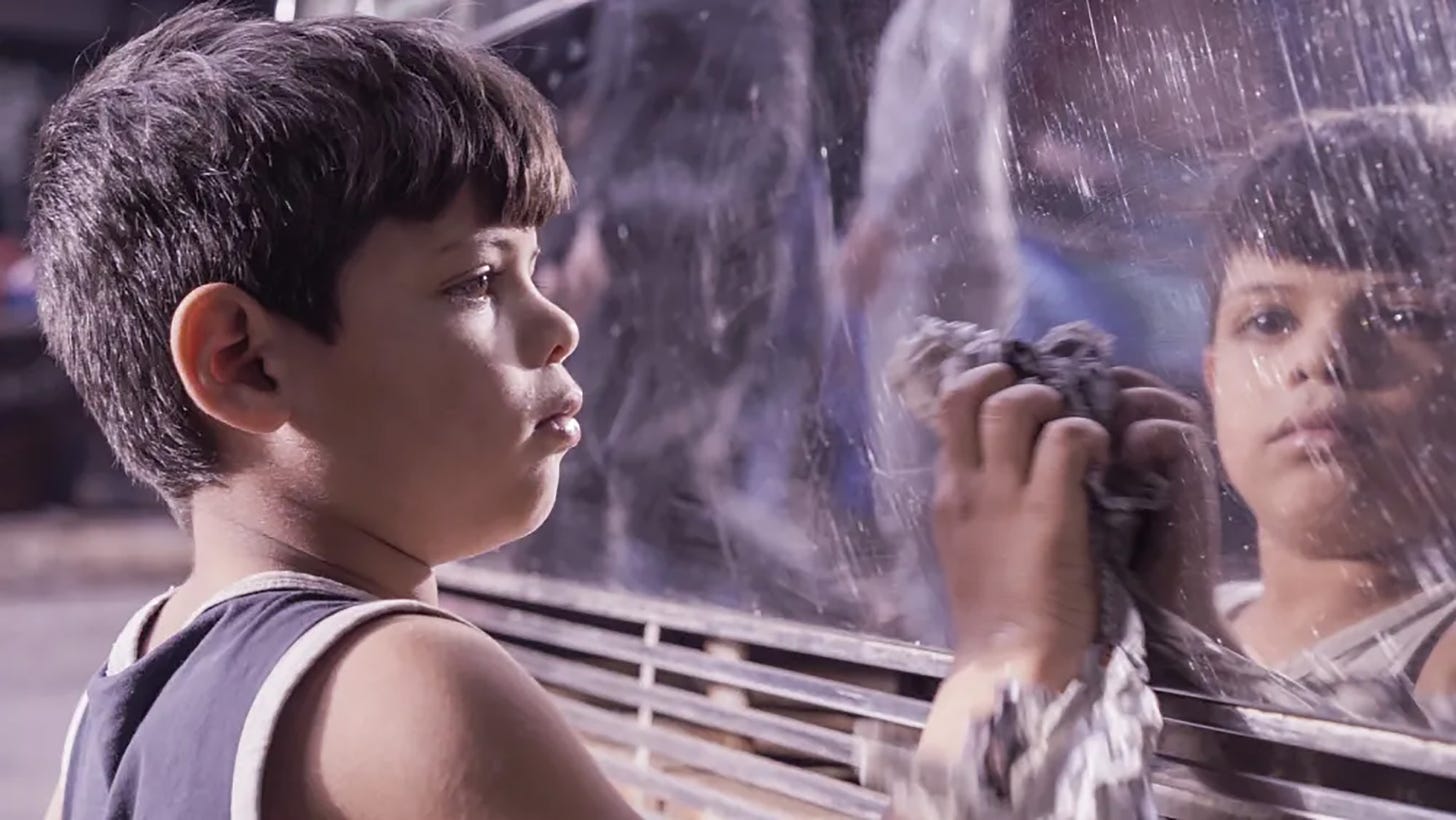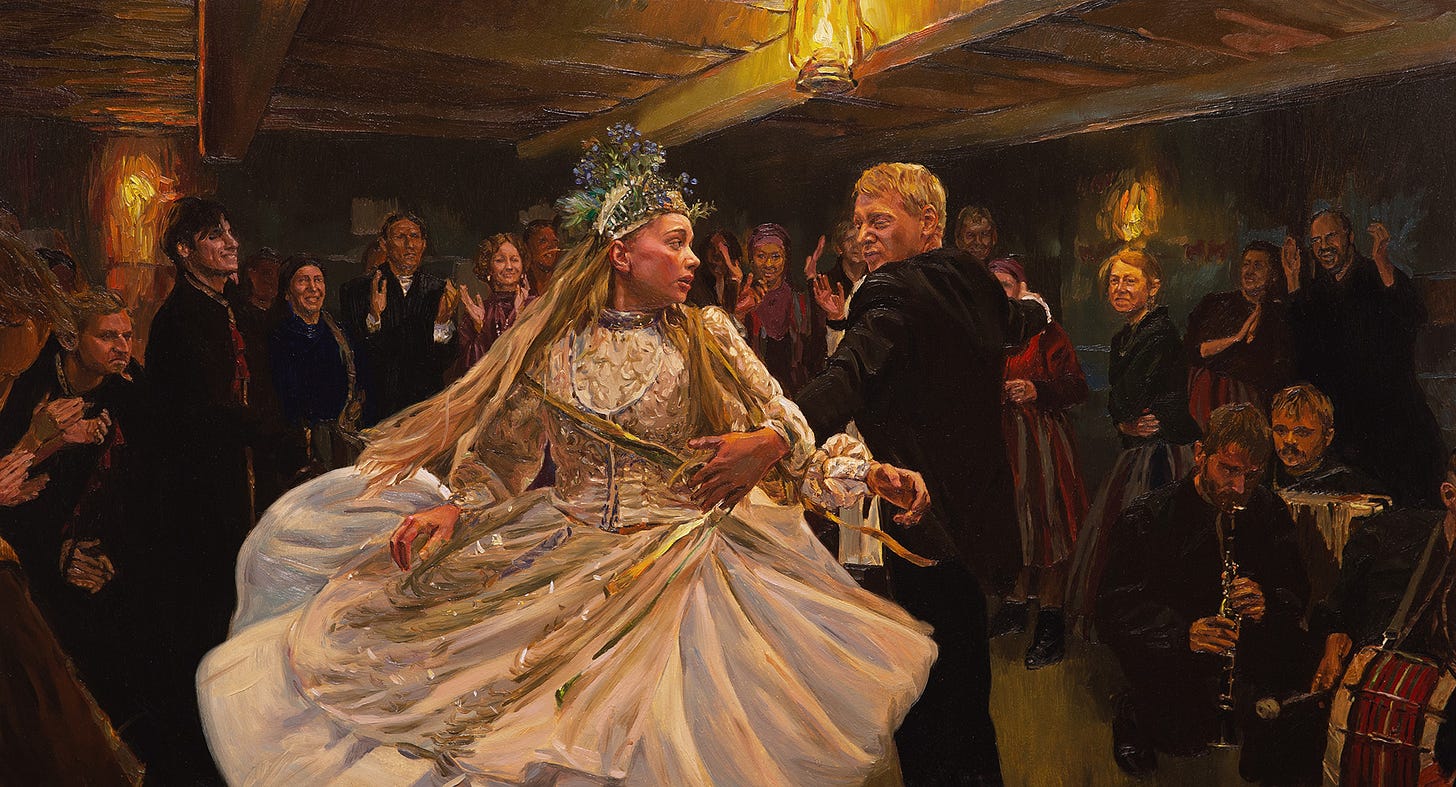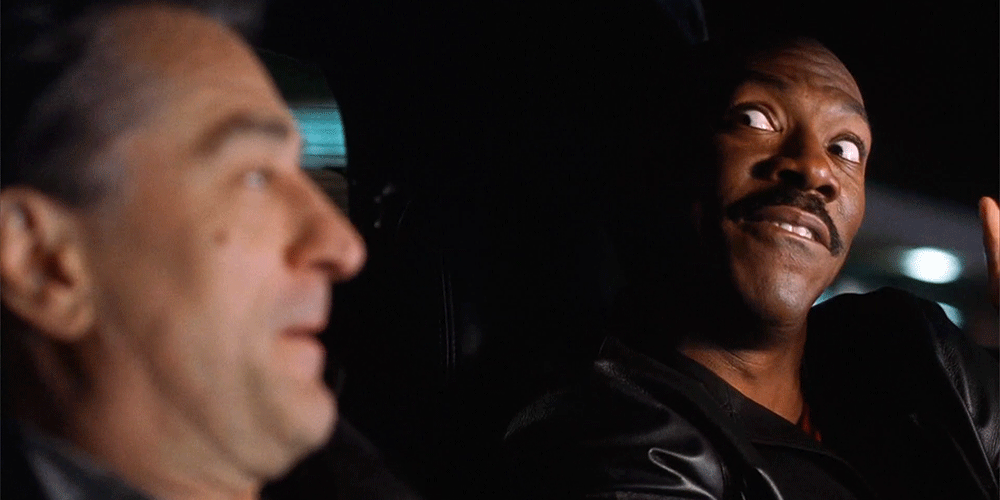The nominations are in and Film Twitter is again showing they know nothing about the Oscars by griping about “snubs” and what “earned” what. It’s 2024, people. There have been more than 5 Best Picture nominees every year since 2009. You can’t keep saying “I guess the film directed itself” when your personal fave misses out because of simple math.
It’s not like things would be better if Christopher Nolan missed, though. His stans would be going wild too. Perhaps even wilder. But it’s not like Greta Gerwig didn’t get a nomination for writing BARBIE. It’s not like Margot Robbie didn’t get a nomination for producing BARBIE. It’s not like BARBIE didn’t get eight nominations. The Academy generally spreads the wealth. And saying they “snubbed” anyone is a gross disservice to those who did get nominated. Netflix simply does a better job whispering in ears than Warner Bros.
I say that in jest, but … wow. Both Bening and Foster for NYAD? It’s deserved as both were very good, but no one has been talking about NYAD. And by “no one” I mean critics and Film Twitter who, and this seems to get lost every year, DO NOT VOTE FOR THE OSCARS.
The pundits and insiders speculate about information that doesn’t actually matter. Yes, the more vocal critics are about a film does factor into how many Academy voters watch it due to buzz, but taste is never a one-to-one comparison. Especially with acting. I’d argue Academy members and critics are separated by a HUGE divide on what “good acting” truly is.
Personally, I think the nominations are really solid. I think Charles Melton and Andrew Scott got robbed (not snubbed), but I love that Colman Domingo and America Ferrera snuck in. ELEMENTAL over TMNT? Yes! Thank you. FOUR DAUGHTERS in documentary? It’s literally all I wanted from that category … but I’ll also take three titles I didn’t have on my radar joining it to give me more to watch in the coming weeks.
The biggest surprise for me was honestly seeing that KILLERS OF THE FLOWER MOON missing adapted screenplay. That was a shocker, but also, perhaps, evidence of just how important campaigning is to this whole charade. If the rumor Charles Bramesco overheard at a bar is true, that is. Because regardless of the reason why, if Eric Roth wasn’t glad-handing while the others were … it does make a difference.
What I Watched:

20 DAYS IN MARIUPOL [20 днів у Маріуполі]
(streaming via PBS)
AP journalists Mstyslav Chernov (who directs, writes, and narrates) and Evgeniy Maloletka headed into Mariupol at the start of Russia’s invasion of Ukraine, knowing the port city would be a key piece in the impending war. For the first twenty days of bombing, they walked the streets interviewing citizens, hid in basements, and visited overwhelmed hospitals all while searching for good enough internet to send their footage to their editors. And just hours before their final shelter was taken by Russian soldiers specifically looking for them as a means to stop their reporting, Chernov and Maloletka escaped.
That’s not a spoiler. This film doesn’t exist if they get captured. As it was, Russians still falsely debunked their videos as being an elaborately staged misinformation campaign enlisting actors to pose as victims. That’s the state of today’s world thanks to shrewd officials using social media tools to manipulate and propagandize lies just as easily as others utilize those tools to share the truth. One could say it’s easier to do the former since you don’t need to back anything up with evidence. At one point some Ukrainian civilians even scream into the cameras that their own military is the cause of their suffering.
20 DAYS IN MARIUPOL documents it all. The fear, death, and despair. The tears of doctors telling Chernov to film everything so the world can know. The tears of men dragging dead bodies into mass grave trenches they’ve dug to make room in hospitals under siege. The tears we assume are shed by Chernov himself whenever he puts down his camera and helmet to stand off-camera and process what he’s just witnessed. He and Maloletka are nothing short of heroes for daring to remain when everyone else had left. Heroes that the doctors and military did everything they could to protect so that these atrocities wouldn’t be buried.
Yes, it’s another harrowing call for audiences to bear witness. One that earns its labels of “important” and “crucial” simply by existing. That it’s also a well-edited and structured story is merely an afterthought—albeit a major factor that ensures it’s seen and appreciated where others might not be. Because you’ve seen this footage before. Maybe not this actual footage or even footage from this particular war, but footage of the horrors mankind delivers upon itself. To have it told by those who documented it and risked their lives to protect it provides an additional layer that sets it apart. Hopefully just enough to spark the seeds of change.
- 8/10

BOBI WINE: THE PEOPLE’S PRESIDENT
(streaming on Disney+)
You must give Robert Kyagulanyi Ssentamu aka Bobi Wine a lot of credit. It’s one thing to have your eyes opened to the corruption of your homeland’s government and find the courage to use your popularity and platform to speak against it as he did in Uganda. It’s another to leverage that voice on a personal quest to spark real change by fighting back on the campaign trail despite knowing the threats and violence anyone who dares challenge “President” Yoweri Museveni will face. And as Moses Bwayo and Christopher Sharp’s documentary BOBI WINE: THE PEOPLE’S PRESIDENT shows, that risk can be even worse than you imagined.
This is an extensive, uncensored, and expertly constructed look at the lengths a dictator will go to wield his military regime and secure power. What starts in 2014 to show a thirty-something pop star speaking truth in his verses progresses through a successful Parliamentary win and multiple unjust incarcerations—one of which left Bobi tortured and briefly unable to walk without support. The filmmakers’ cameras catch it all: every example of the incumbent leader’s systematic reign of oppression. The lies. The murders. The kidnappings. The internet shutdowns. The unchecked hypocrisy project upon the world’s stage.
Yet despite all the fearmongering and attempts at silencing the will of the people by this tyrant, the real horror is the potential of resigning yourself to the fact that few if any people can actually do something about it. Bobi Wine is only able to get as far as he does because of his built-in fame and fortune. Anyone else would be helpless to continue at the first sign of danger because a lengthy arrest means an inability to work. Police blockades preventing you from leaving your home means an inability to secure food. Constant abuse means putting your family in the crosshairs with no means of escape.
Thankfully, Bobi does have the money and connections to not need to record new songs for a revenue stream. He can afford to put his children on a plane to America so they aren’t at risk of catching a bullet that’s meant for him—many in his entourage must instead. And even with that luxury, Museveni still keeps crossing the line to further consolidate his control. Even with Bobi’s celebrity putting millions of eyes upon an African election, the international community does little to truly help. So, it renders the musician-turned-politician even more heroic and revered. And, unfortunately, even more hopeless.
The challenge is therefore to not let futility set in. To not lose your determination in the thought that nothing will ever get better if someone with Bobi Wine’s reach barely makes a dent. Because his tireless work wasn’t just a dent. It wasn’t just a meaningless fight that left the country exactly where it was beforehand. His message resonated. It inspired the masses and made Museveni so afraid that he let the mask slip further than he ever had in the past, radicalizing more of a very young population in the process. Change might not happen overnight (or after eight years as in the case on-screen), but as Bobi exclaims, “It will happen.”
- 7/10
IN THE SHADOW OF BEIRUT
(Ireland’s 2023 International Oscar submission)
I’ve always heard that Beirut, Lebanon is a beautiful, modern city—the likes of which “surprises” people when they get off the plane assuming (in a mostly anti-Arab, racist way) that they’ll see poverty wherever they look. That beauty, like in many other places, however, comes at a cost. Especially in a country that has seen decades of government corruption making it so the already damning statistic of 40% of Lebanese residents living in poverty could recently balloon to 80%.
Directors Stephen Gerard Kelly and Garry Keane’s IN THE SHADOW OF BEIRUT looks to shine a light on that cost in the form of a garbage-riddled section of land just five kilometers outside Beirut proper known as Sabra and Shatila. The site of a Muslim massacre in 1982 at the hands of Catholic Lebanese with the help of the Israeli army, the settlement is currently an over-stuffed and under-funded slum inhabited by a mix of survivors, original Palestinian descendants, and Syrian refugees who fled ISIS.
By following four families during the course of five years, the documentary proves a damning indictment on living conditions made increasingly worse with every new law change. Most of the residents aren’t even citizens either because their fathers aren’t Lebanese (a Lebanese mother isn’t enough) or because they are foreigners with no clear path towards citizenship. As such, they cannot apply for driver’s licenses or permits. They cannot apply for jobs necessary to afford educations for their children. It becomes a vicious cycle of pain and suffering, crime and hopelessness.
The film’s subjects are determined to persevere nonetheless. These are generous souls trying their best to ensure better futures for their kids. Maybe that means marrying off daughters at thirteen or putting ten-year-old boys to work earning $3 US for a fourteen-hour day. Maybe it means living amongst rats and water-logged circuit breakers ready to blow. At the end of the day, these men and women are surviving despite their circumstances. Like so many impoverished people around the world, love ultimately sustains their humanity. They simply need those in power to remember their own.
- 7/10
THE PEASANTS [Chłopi]
(in limited release)
The concept fit like a glove: tell a story about Vincent Van Gogh, inspired by the letters he sent to his brother, in the expressionistic style of the artist. LOVING VINCENT wasn’t a perfect movie, but DK Welchman and Hugh Welchman had a winner regardless because of the sheer audacity of its creation.
I’m not so sure that same audacity can carry their follow-up. Not because it doesn’t remain a beautiful and painstaking work of cinematic art, but because adapting Wladyslaw Stanislaw Reymont‘s Nobel Prize-winning novel THE PEASANTS doesn’t possess a need for the aesthetic. Besides the gorgeous time-lapse transitions between the seasons, the whole simply looks like a rotoscope pass of an already shot live-action movie. What does that layer of paint therefore add to it beyond a gimmick whose craft might help smooth over any deficiencies of the film itself by driving the conversation?
That which exists underneath those brushstrokes is fine. A tale about the nightmare of living as a beautiful peasant woman in a 19th century Polish village—property to be bartered, sold, and exploited either physically for sex or emotionally as a scapegoat for the community at-large’s vast shortcomings. What ensues is a tragic depiction of surviving the misogyny of those she loves, those who love her, and any other opportunist willing to jump on the bandwagon for profit at her expense.
It’s an ever-increasing example of mob justice wherein everyone is either a coward deflecting from their own flaws or a victim of violent abuse for daring to stand-up for the truth. It’s miserablism at its finest. A look back in time to see the dark shadows of the present’s continued injustice with good production value, good performances, and an unnecessary painterly sheen. It’s worth a look, but I’m not sure it offers much beyond the evolution of what has become the directors’ animated oil-painting trademark.
- 6/10
Cinematic F-Bombs:
This weekend sees THE FRONT (1976), HERO (1992), NYAD (2023), PAST LIVES (2023), and SHOWTIME (2002) getting added to the archive (cinematicfbombs.com on Sunday, Twitter on Monday).
New Releases This Week:
(Review links where applicable)
Opening Buffalo-area theaters 1/26/24 -
FIGHTER at Regal Elmwood & Galleria
GODZILLA MINUS ONE MINUS COLOR at AMC Market Arcade; Regal Elmwood, Transit, Galleria & Quaker
MALAIKOTTAI VAALIBAN at Regal Elmwood
ORIGIN at AMC Maple Ridge; Regal Elmwood, Galleria & Quaker
“It's an ingenious approach to simultaneously educate and entertain. Some of it works better than the rest, but you cannot deny the power of the whole when [its] more lecture hall passages are put into context with the authentic human drama of the rest.” – Full thoughts at HHYS.
UNBILLIEVABLE at Regal Elmwood, Transit & Quaker
THE ZONE OF INTEREST at Dipson Amherst (also opens North Park on 2/2)
“That's where its power to disturb lies. Not just with you acknowledging the horrific similarities to your own day-to-day, but also the characters on-screen numbing themselves to the truth with varying degrees of success.” – Full thoughts at HHYS.
Streaming from 1/26/24 -
BADLAND HUNTERS – Netflix on 1/26
SUITABLE FLESH – Shudder on 1/26
“It's still sillier than not, but that's intentional. Lynch made a throwback that begs for hoots and hollers. ‘Elevated horror’ fans can stay home.” – Full thoughts at HHYS.
THE GREATEST NIGHT IN POP – Netflix on 1/29
ARRANGED LOVE – Peacock on 1/30
WILL – Netflix on 1/31
Now on VOD/Digital HD -
AQUAMAN AND THE LOST KINGDOM (1/23)
FERRARI (1/23)
“We love our entertainment and vicarious fantasies way too much to hold anyone in power accountable. We'd rather give them glacially-paced Oscar-bait biopics that pretend cold callousness is a trait of greatness rather than evil.” – Full thoughts at HHYS.
MIGRATION (1/23)
NIGHT SWIM (1/23)
ONCE WITHIN A TIME (1/23)
SMOKE SAUNA SISTERHOOD (1/23)
WISH (1/23)
“The real draw is the animation. It's like WISH took 2D cell paintings and modeled them in 3D. The duality can be jarring at first, but quite beautiful the more you sit with it.” – Full thoughts at HHYS.
AMERICAN STAR (1/26)
BAD HOMBRES (1/26)
FALLEN LEAVES (1/26)
“Aki Kaurismäki has created the year's driest romantic comedy with FALLEN LEAVES: a slow-building love affair [with] an acerbic wit that has the slyest of grins coming across as belly laughs.” – Full thoughts at HHYS.
JUNCTION (1/26)








